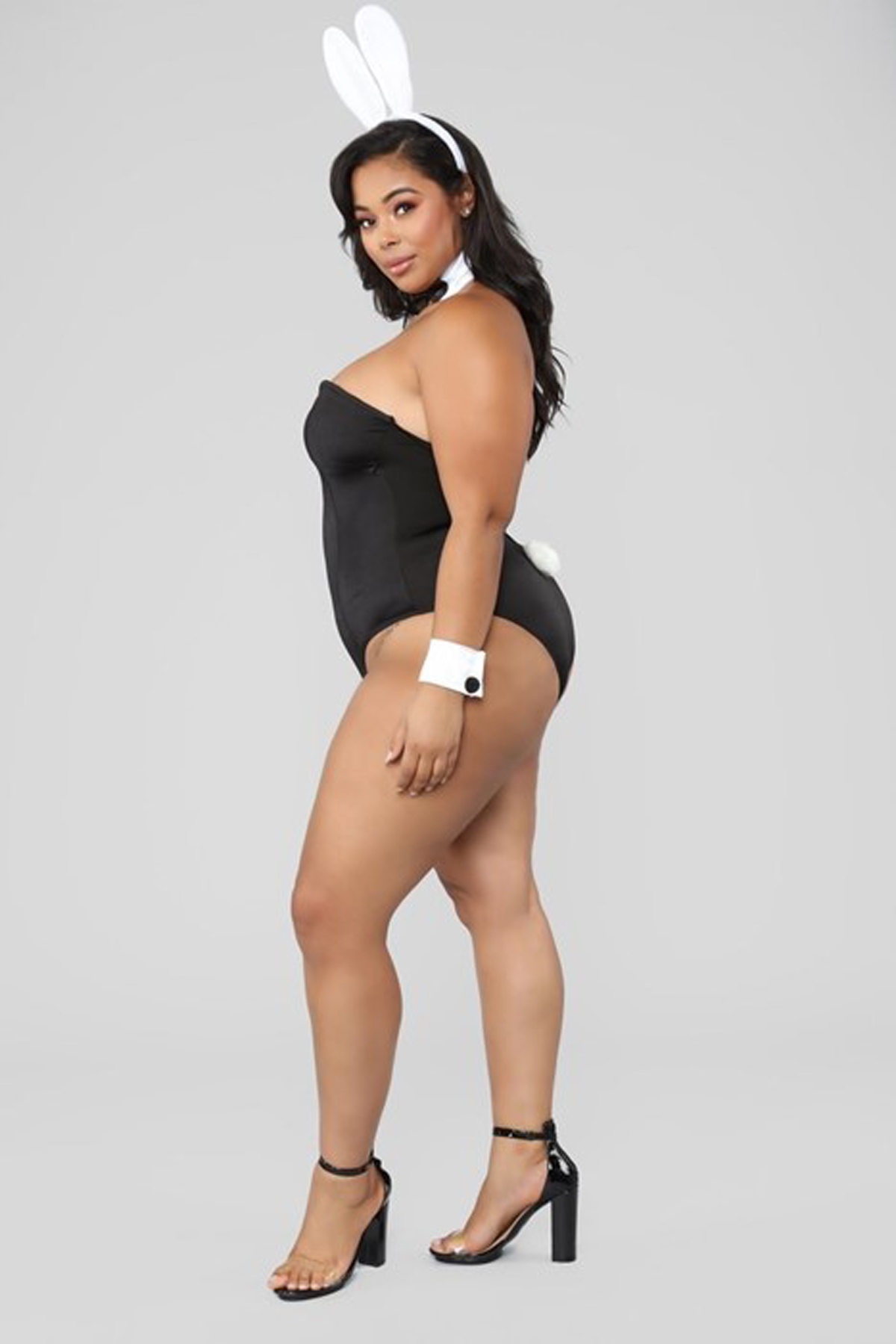Playboy sues Fashion Nova over its sexy bunny costume
Halloween is one of the only days of the year where wearing the tiniest outfit possible is acceptable. Because everyone does it, no one really cares about the fact that you’re dressed as a slutty nun, which in itself is a pretty obvious paradox. But among the sea of sexy costumes, one remains the holy grail of Halloween basicness: the Playboy Bunny costume. So much so, that even Fashion Nova came out with its own take (read copy) on the timeless outfit. One thing the brand didn’t see coming? A lawsuit from Playboy.
Playboy sent the fast fashion giant a cease and desist letter demanding it removes the set from its digital shelves. According to TMZ, the bunnies of the mansion are set on suing Fashion Nova after it continued to sell the costume. If you check Fashion Nova’s website, it will become apparent that yes, the brand doesn’t seem to care much about Playboy’s threat.
The costume, which is made up of a black bodysuit, a bow-tie and collar, tuxedo cuffs, as well as a pair of bunny ears and a tail (of course), is almost identical to the original outfit Playboy Bunnies wore in the mansion while serving at the Playboy Club, albeit, the tail could definitely be fluffier.

Although Fashion Nova has so far ignored Playboy’s requests to stop selling it, the brand did change one thing. The costume’s name went from ‘Bunny of the Month’ to ‘Miss B Bunny’ and ‘Bunny Hop’ after Playboy pointed out it was extremely similar to its ‘Playmate of the Month’ trademark.
As you’ve probably guessed it by now, this is not the first time Fashion Nova is accused of ripping off someone else’s design—on the contrary, the fast fashion brand is well-known for its badly reproduced looks. Last November, Versace made moves to sue the brand after it claimed it copied its “most famous and recognisable designs,” including the iconic green jungle dress Jennifer Lopez first wore in 2000 and again in 2020, when she wore an updated version of it in an attempt to break the internet.
With legal proceedings currently underway, Playboy is set on stopping Fashion Nova from selling its copy of the Playboy Bunny costume. As much as I love seeing it, I wonder what the powerhouse intends to do about all the other fancy dress stores selling their own imitation of the costume. Hopefully not much, otherwise what will all the Regina Georges of the world wear?






